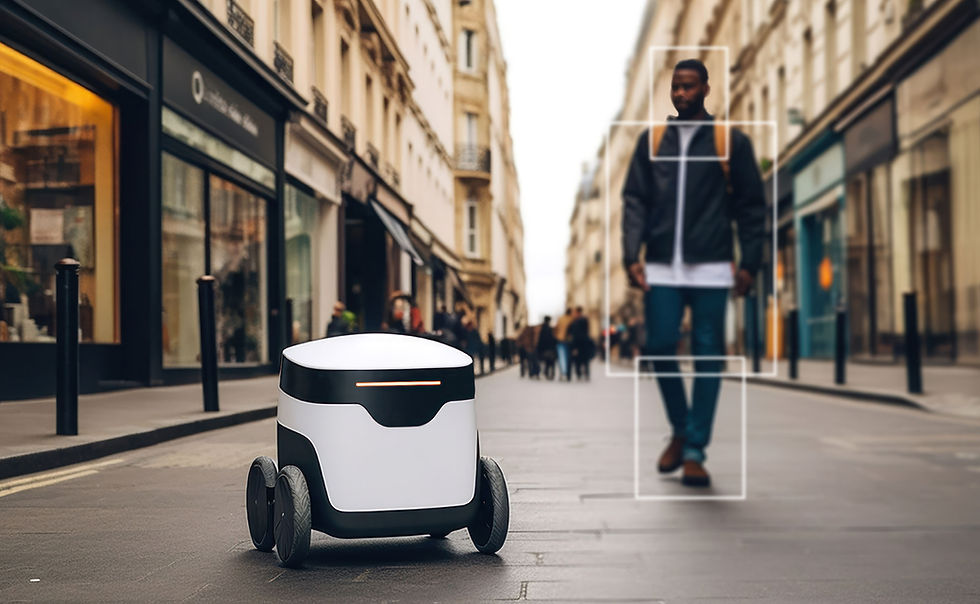Empowering Citizens: How Government Leaders Must Use AI to Help People evolve with the Jobs of the Future
- Kim Kelley

- Jul 5, 2025
- 4 min read
In today's fast-paced digital world, artificial intelligence (AI) is at the forefront of transforming our lives. Government leaders face a pressing task: ensuring the benefits of AI reach everyone, not just a select few. As AI changes how we work, interact, and build communities, leaders must prioritize the Citizen Experience. This approach not only safeguards the well-being of citizens but also helps address the challenges posed by AI in our ever-evolving society.
This post highlights the importance of investing in the Citizen Experience as a crucial step for resilience and progress amidst the AI revolution. Government leaders need Citizen Experience like software products focus on user experience.
Understanding the Citizen Experience and Using AI to Do It
The Citizen Experience refers to how individuals interact with their government, which includes access to public services, information, and community support. In the age of AI, citizens expect more than just basic services; they want meaningful, effective, and fair interactions. For example, a survey by the McKinsey Global Institute found that 70% of citizens want digital services that are as seamless and user-friendly as those provided by private companies.
By focusing on the Citizen Experience, leaders shift from seeing governance as a mere transaction to fostering relationships. This transformation builds trust and encourages active participation in civic life. In a landscape where algorithms guide many decisions, transparency is vital.
The Challenges of AI Integration in Outdated Thinking
AI presents challenges, including job displacement and privacy worries. These issues can create anxiety among citizens. To navigate this, leaders must take the lead in discussions about the responsible use of AI.
For example, AI can be used effectively to monitor public health trends. During the COVID-19 pandemic, AI predictive models helped identify areas with rising infection rates, allowing for timely interventions. However, for citizens to embrace these technologies, they need education on how AI systems work. Clear communication about AI's purpose can alleviate fears surrounding surveillance and job loss.
Building Trust Through Transparency
Building trust between citizens and governments is crucial in our AI-integrated lives. Many may feel uneasy about issues like surveillance, data privacy, and biases in AI algorithms. To foster trust, leaders must prioritize transparency in AI usage and data collection.
One way to achieve transparency is through engaging citizens in public forums and consultations. For instance, cities like San Francisco have held open discussions on how AI technologies are applied in public services, allowing residents to voice concerns and ask questions. By demonstrating how AI enhances public services, governments can bridge the gap between technology and its effects on daily life.
Economic Adaptation and Workforce Resilience
AI significantly impacts the job market, threatening both low-wage and skilled positions. An estimate by the World Economic Forum suggests that by 2025, 85 million jobs may be displaced due to automation. To mitigate this, leaders should promote workforce resilience through retraining and upskilling programs.
For example, community colleges can partner with local businesses to create training programs that align with the needs of emerging industries, such as virtual reality and renewable energy. By equipping citizens with skills for the future, governments can help them navigate job market changes while also fostering job creation in innovative sectors.
Engaging in Co-Creation with Citizens and AI
Getting citizens involved in decision-making creates a sense of ownership and community. Co-creation initiatives allow citizens to share their ideas and feedback on AI solutions that directly affect them. Rather than treating citizens as passive recipients of services, leaders should encourage active participation in policy design.
Platforms that enable citizen feedback, like online surveys or town hall meetings, help capture diverse perspectives. In Helsinki, Finland, the city uses participatory budgeting where residents can vote on community projects they want funded. This approach not only builds trust but also ensures that services address the real needs of citizens.
Social Equity in AI Deployment for Government Leaders
AI can deepen social inequalities if not carefully managed. Marginalized communities may find it harder to access the benefits of AI due to limited resources or digital literacy. Leaders need to address equity in their strategies to ensure all citizens can benefit from AI advancements.
Investing in programs that improve digital literacy in underserved areas ensures that everyone can navigate technology. Moreover, enhancing internet infrastructure in these regions is crucial. A report from the Pew Research Center indicates that 35% of low-income households lack access to broadband, significantly hindering their ability to thrive in an increasingly digital world.
Cohesive Policy Frameworks Using AI to make Informed Decisions
As leaders tackle the challenges posed by AI, a comprehensive policy framework is essential. This framework should prioritize ethical standards and accountability while promoting innovation. Guidelines for AI development and data collection ensure citizens' interests are protected.
Successful examples include the European Union's General Data Protection Regulation (GDPR), which enforces strict data protection measures. Implementing similar policies can ensure that governments balance technological growth with civic responsibility.

Embracing the AI Era with Confidence to Help Citizens Evolve
The impact of AI on society is vast, presenting both challenges and opportunities. For governments, success depends on a dedicated effort to improve the Citizen Experience. By emphasizing transparency, trust, workforce resilience, co-creation, social equity, and cohesive policies, leaders can effectively navigate the complexities of the AI era while ensuring no citizen is left behind.
Ultimately, the ability of leaders to listen, adapt, and empower citizens will dictate the future of society. With a committed focus on the Citizen Experience, governments can leverage AI to create a vibrant environment where everyone has the chance to thrive.




